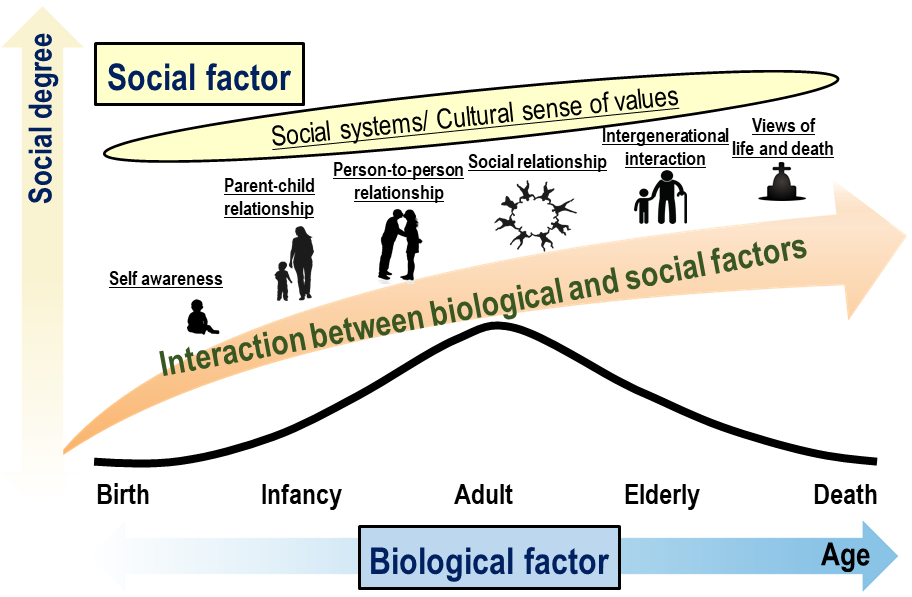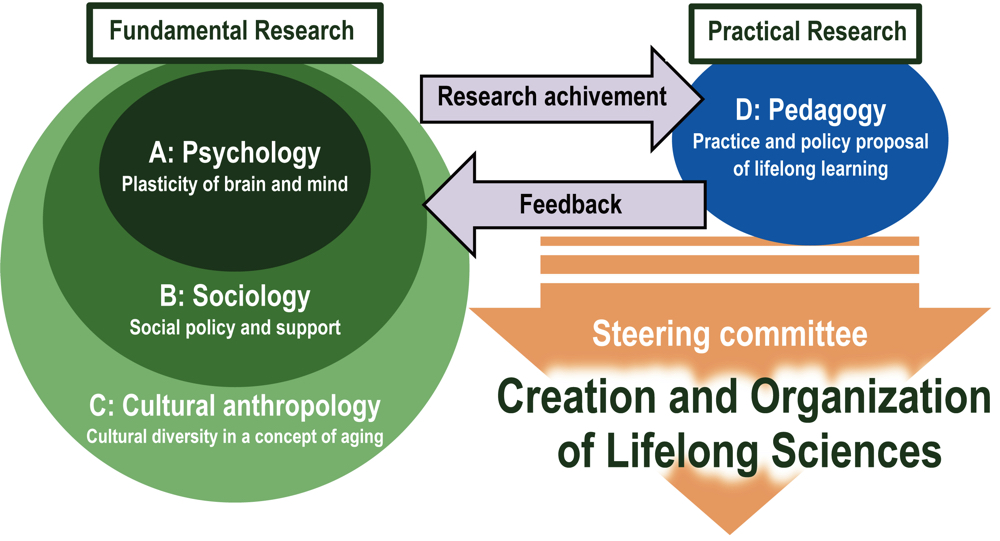Aims of this research area
The purpose of this research project is to reconceptualize a human lifetime as a series of complex processes by interactions with the surrounding social values and social relationship (see Figure 1), and to propose the contemporary view of development and aging by replacing the traditional view of “growing to declining”. To tackle this issue, we employ the multidisciplinary approach, which includes the fundamental research of cognitive psychology, physiological psychology, clinical psychology, sociology, cultural anthropology, and the practical research of pedagogy. With the integration of these research areas, we would like to provide scientific evidence to realize comfortable lives in all generations, and to make a new program of lifelong learning using the results of fundamental research.

Contents of this research area
In this project, we would like to clarify psychological and social mechanisms and to propose a new program of lifelong learning under the new concept of human development and aging. Details of our approach in this project are described below.
In cognitive and physiological psychology, researchers investigate neural and psychological mechanisms underlying impaired and preserved functions in older adults. In addition, researchers in clinical psychology evaluate cognitive declines in patients with neurological and psychiatric diseases, and investigate mechanisms related to cognitive and brain reserve. Researchers in sociology survey how social supports are effective enough to realize comfortable lives in Japanese people by statistical analyses of large data sets. In cultural anthropology, research teams investigate cultural diversity in concepts of development and aging by field studies in several areas of Africa and Asia/Oceania, and propose future directions in the reconceptualization of development and aging. In studies of pedagogy, researchers apply findings in fundamental research of psychology, sociology and cultural anthropology to make a new program of lifelong learning in population who lives in areas damaged by the Great East Japan Earthquake, and propose the social policy of this program by working with regional government.
The multidisciplinary approach in this project could finally contribute to create and organize the new research field, “Lifelong Sciences” (see Figure 2).

Expected outcomes and significance
The main achievement of this project is to create and organize the new research field, “Lifelong Sciences”, and to propose the contemporary view of development and aging, which is beneficial to people living in the super aging society. In other words, our studies under the contemporary view could contribute to showing that human beings are able to adjust them flexibly by interacting with a social context. In addition, scientific findings of the plasticity in brain and mind could be helpful enough to form educational programs for elderly people. This suggests that our project provides scientific evidence to realize the new style of super aging society.
